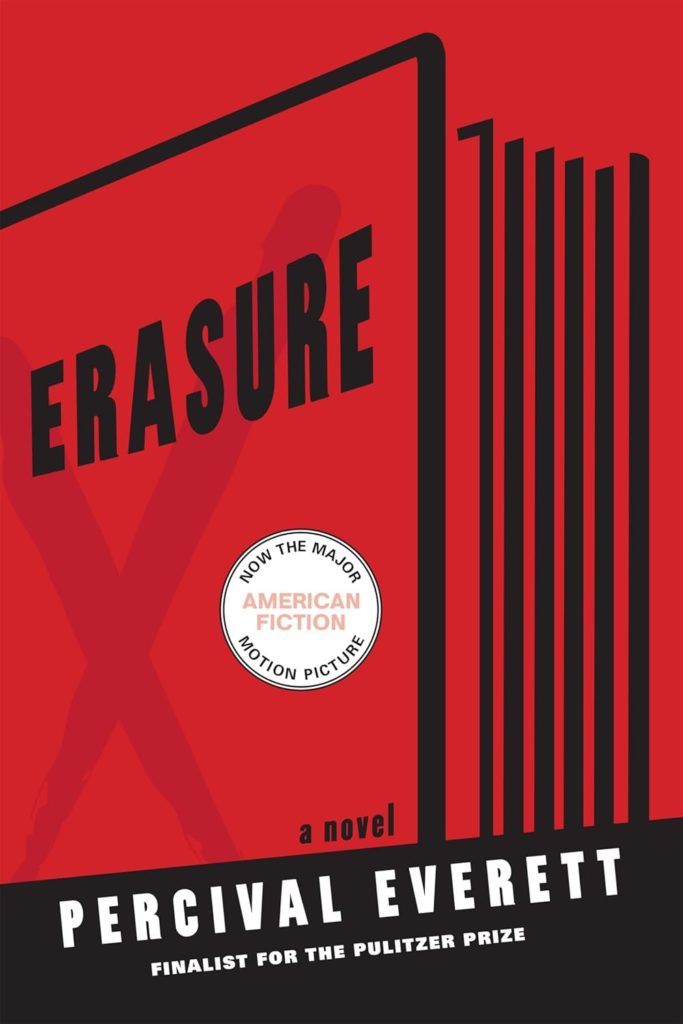Erasure is a book I’ve been hearing about all over the place. First off I saw R.F. Kuang discuss it and then I had a friend of mine mention it to me. I’m the go to book person and so they mentioned they had seen the film. So I knew I had to read it! Keep reading this book review of Erasure for my full thoughts.
Summary
Thelonious “Monk” Ellison’s writing career has bottomed his latest manuscript has been rejected by seventeen publishers, which stings all the more because his previous novels have been “critically acclaimed.” He seethes on the sidelines of the literary establishment as he watches the meteoric success of We’s Lives in Da Ghetto , a first novel by a woman who once visited “some relatives in Harlem for a couple of days.” Meanwhile, Monk struggles with real family tragedies―his aged mother is fast succumbing to Alzheimer’s, and he still grapples with the reverberations of his father’s suicide seven years before.
In his rage and despair, Monk dashes off a novel meant to be an indictment of Juanita Mae Jenkins’s bestseller. He doesn’t intend for My Pafology to be published, let alone taken seriously, but it is―under the pseudonym Stagg R. Leigh―and soon it becomes the Next Big Thing. How Monk deals with the personal and professional fallout galvanizes this audacious, hysterical, and quietly devastating novel.
Review

In many ways, Erasure echoes conversations I’ve been hearing about publishing for a while. It expresses frustration with feeling like only one type of story can be told about our ‘experience’ or our ‘ethnicity’. That there’s only a place in publishing for stories that fit exactly who they already think we are. It fits into Monk’s own feelings of having to prove he’s ‘black enough’. There are all these layers of what people perceive of us before we even utter a word. And publishing is no different. So Monk’s story discusses themes I’ve been thinking about for a while now.
What I appreciated in Erasure are that we get snippets not only of the book he wants to write, but also whole chapters of the book he does write. It’s easy to look at Erasure as a story about Monk’s writing and the character he adopts as somewhat of a parody. Additionally to see the all too easy ways it could actually happen. But Erasure is also devoted to looking at Monk’s personal life and family. He finds out pieces of his father’s past when he has to take care of his mother. Witnessing the decline of a loved one to Alzheimer’s resonated. And there were some moments that made me laugh!
(Disclaimer: Some of the links below are affiliate links. For more information you can look at the Policy page. If you’re uncomfortable with that, know you can look up the book on any of the sites below to avoid the link)
It is very me to be angry at someone for not liking a book or visa versa! While the ending left me wondering – and I’ll have to check out the film now – all in all, I appreciated what Erasure had to say. If I had read this book five years ago, some of the themes about the strict roles marginalized stories ‘play’ might have made more of an impact. But it’s a topic I’ve been thinking about for a while now. In the 2024 year I’m not sure such a ruse could be perpetuated with the social media access and the ways being an author has changed in some respects, but I found myself enjoying Erasure.
Find Erasure on Goodreads, Storygraph, Amazon, Bookshop.org, Blackwells, & Libro. fm.